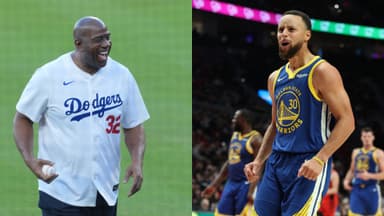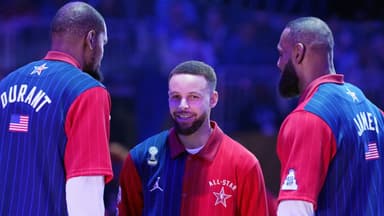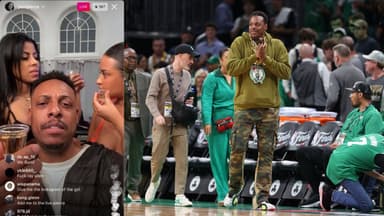This year’s WNBA All-Star game won’t be remembered for which team won the game or who won the MVP award, but people will remember how the players appeared in solidarity before the game in “Pay Us What You Owe Us” warmup shirts. That’s because the upcoming collective bargaining negotiation between the league and the players has been the storyline of this season, more important than Caitlin Clark’s injury-riddled year, Paige Bueckers’ historic rookie season, or Napheesa Collier and A’ja Wilson’s MVP battle.
Advertisement
The WNBA playoffs began yesterday, but it’s looking like this postseason is just the calm before the storm. The deadline for the league and the players to ratify a new CBA is Halloween. That’s only 46 days away, and about two weeks after the Finals will conclude.
There’s a real possibility of a work stoppage, as the players have been strident in their opinion that they deserve a much larger piece of the pie, but the league seems reluctant to give it to them.
On the latest episode of Byron Scott’s Fast Break, Scott and guest Olden Polynice weighed in on the upcoming negotiations, and though their hearts appeared to be in the right place in terms of wanting what was best for the players, the outdated talking points they repeated undercut that to some degree.
“I respect everybody’s grind, everybody’s hustle,” Polynice said, while touting his WNBA bona fides by pointing out that he was a color commentator for the now-defunct Sacramento Monarchs in the inaugural season of the league.
“You cannot compare yourself to the NBA,” Polynice said. “They bring in revenue. You guys are not, you lose money every year.”
Scott agreed, saying, “I think you can make all these demands all you want, but the bottom line is, if your bottom line isn’t bringing in revenue, it’s kind of hard to make these demands.”
“You can’t continue to say you want to be paid, and you’re not saying you want to be paid like guys in the NBA, but you want to be put on that level,” he continued. “You’re not gonna get revenue sharing, you’re not gonna get 50%, you’re not gonna get it. You’re at 9% now, something like that, you ain’t gonna get it. So I think their demands have to be, I wouldn’t say squashed, but they have to be where they’re more realistic.”
Scott did say of WNBA players, “I ain’t mad at ’em,” for trying to get what they can, but in telling these women to be “realistic,” he’s willfully ignoring the fact that the league signed a new 11-year, $2.2 billion media rights deal last summer that’s worth about six times more annually than the previous one.
The narrative of the WNBA losing money no longer applies, not when the league expanded this year with the Golden State Valkyries and has five more teams set to begin play in the next five years. The ownership groups of those five teams, which will be located in Toronto, Portland, Cleveland, Detroit and Philadelphia, collectively paid just under a billion dollars to get their foot in the door.
The players are operating from a position of strength here, because not only can they point to the newest media rights deal and the upcoming expansion explosion as the clearest indication of their value, they also have the nascent Unrivaled league to fall back on.
Unrivaled was created by Napheesa Collier and Breanna Stewart, and its first season, which was held earlier this year during the WNBA’s offseason, was a huge success. Full of WNBA stars, the 3-on-3 format was extremely exciting and TV-friendly, and the league recently surpassed expectations by announcing a $340 million valuation thanks to a new round of investors.
According to ESPN, Unrivaled players averaged over $200,000 in salary, and they also received equity in the league. That will allow them to take a harder line in WNBA CBA negotiations.
Scott went on to say of the WNBA players, “Their bluff might be called,” but it doesn’t sound like he realizes that they actually hold all the cards here. The league is going to have to offer serious salary increases, or it’s going to find out the hard way that these ladies are serious, and they know their worth.
Fans are interested in women’s basketball, and if the WNBA doesn’t pay the players what they’re worth, it’ll squander all the positive momentum of the last couple of years. If they don’t pay the players what they’re owed, someone else will.








